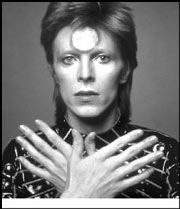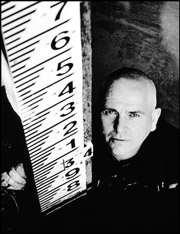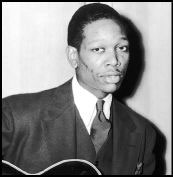SOFT CELL
SPECIAL GUESTS
Showbox, 206-628-3151, $25/$22.50 adv.
9 p.m. Sat., Nov. 30
SLEAZE, DECEPTION, raw emotion, and palpably touchable sex were long the province of cheap detective novels, gay porn, B-movies, or artists like Kenneth Anger and John Rechy. Pop? It rarely touched the stuff—that is, before Soft Cell.
Those naughtiest of notions were rare within the medium, let alone infused by electronic music with a Northern-Brit-soul twist and the garishness of cabaret. But for Marc Almond and David Ball—the British duo who founded Soft Cell after meeting at Leeds Poly Tech in the mid-’70s—they were the tools that weighed their dramatic lyrical kit bag and moody pop; a seared, slippery sound that sold millions and inspired the Pet Shop Boys, Rufus Wainwright (both musically and in terms of risqu頳ubject matter), and Fischerspooner before the duo crashed and burned at their mid-’80s peak. Now, 18 years after their last record together, Soft Cell have reunited for Cruelty Without Beauty, a two-CD set that embraces their 1984 finale as well as the renewal of 2002.
“I’ve been really happy that guys like Neil [Tennant] have come out and acknowledged us, even going as far as saying [that] without Soft Cell, there would be no Pet Shop Boys,” says Almond, emotive lyricist/singer extraordinaire.
“The Pets and Rufus—and I hopefully had my own part—have broken the mold in what is gay expectations: the ghettoizing mentality of what gay arts and music should and could be.” Almond has rarely shied from discussing his sexuality, either in song or in interviews, but he considers himself an artist whose work and audiences should not be limited by boundaries.
“I’m not and never have been interested in being known as a gay artist. That’s the type of thing the straight press will put onto you,” he offers. “Calling me ‘gay artist Marc Almond’ is a subtle way of saying ‘Hey you, straight person—this is of no interest to you. This is freak show-ish and not to be taken seriously.’
“So much of gay culture isn’t taken seriously . . . deservedly so, because so much of it now is based on fad and not culture. Oddly enough, Soft Cell never really had a gay following. It’s because we were never pigeonholed, fortunately, that I think we had an effect on audiences so early on.”
If early ’80s Britpoppers like the Durans and Spandaus of London’s fashion-forward New Romantic scene were about glamour, aspiration, and greed in the era of Thatcherism, Soft Cell’s Leedsian viewpoint—a dankness that led to texts and music which were equally vitriolic, vexingly bitter, and sardonic—was anything but, presenting something smeary and messy instead. “We were alienated from all that,” jokes Almond about the selfishness and hedonism of the period’s consumer culture. “We never got the look right. We thought that was a lie and wanted to show off a prominent underbelly to the Conservative Party—taboos, if you will.”
Looking upon themselves as edgier and art-schoolish, Soft Cell made salacious sensation, rude romance, and decadent dance music sellable entities, starting with hard-electronic tracks like “Memorabilia” and, eventually, the rubber soul of “Tainted Love.” After the commercial success of the latter, their career became an uncomfortably smooth-sailing experience that neither member expected nor necessarily wanted. By the time they’d sold millions, Soft Cell looked to twist and subvert their celebrity into something ironic. “Sadly, irony wasn’t in fashion then,” reflects Almond. “Now, all of a sudden, everyone’s ironic.”
For two gentlemen who thought of themselves as rude punks—and not role models for children that could appear in Smash Hits—Soft Cell were chastised for their rakishly wrong influence on Britain’s youth. “I didn’t want to be the object of screaming young girls’ affection. That was dishonest. Now, I didn’t mind being the object of young boys’ affection . . . ,” says Almond with a chuckle.
OVERWHELMED BY THEIR British success (as well as the stereotyping of “Tainted Love”) and Non-Stop Erotic Cabaret‘s U.S. hit-making run, Soft Cell went hard and cold on the technological tip with the remainder of their sinewy synth-duo catalog—The Art of Falling Apart and This Last Night in Sodom. Both were divinely lo-fi electronic trips through ’80s neon nights full of cheap sex on dirty linens. They didn’t sell like Non-Stop, but they had their desired effect: to destroy the idea that Soft Cell were soft and cuddly. “They cemented in peoples’ minds that we were serious, that we would have a lasting influence beyond that one pop hit.”
Despite being pleased with the music, the push-and-pull of creating hits and artistic albums—as well as what Almond sees as the abject homophobia of the record biz—ate the duo from within. “Despite ‘the hit,’ you know it was the Conservatives who were in power. They were closing down gay clubs and such. So you had to pretend or not say anything.”
Not wanting to get kicked to the curb within the first five minutes of fame (as well as knowing full well he had a straight partner in Ball to protect), Almond kept mum. “I got criticized in gay Britain for not being OUT. But I can’t believe that people had to ask me if I was gay. I mean, c’mon! [I went] on the Top of the Pops in heavy black makeup and rubber jewelry.”
All this came to a head in the British press when fervently out artist Jimmy Sommerville called Almond to the mat for not doing enough for the gay community. Almond responded with the type of sarcasm that had always made his lyrics a breath of fresh air: “I can do something for the gay community. I could strangle Jimmy Sommerville.”
SOFT CELL BROKE apart abruptly in 1984. Almond began a solo career rich in influences as wide ranging as Phil Spector and Noel Coward, in a voice reminiscent of Mabel Mercer getting drunk with Ann Peebles. His solo platters— Torment and Toreros, Mother Fist and Her Five Daughters, A Virgin’s Tale and Open All Night—present low-moaning blues, cleaving cabaret tunes, and sexy dance numbers sung with stunning simple clarity. Ball, meanwhile, went on to form the Grid and did remix work with Kylie Minogue, among others.
So why after nearly two decades did they bother to make another record? Simple: Almond and Ball found the Soft Cell story wasn’t quite complete. “Neither one of us wanted it to end [at the time] really,” recalls Almond. “It was an unfinished masterpiece.”
They also continued—while writing together on occasion—to have a desire to make spare, simple electro-pop records that spoke with economy about the sorry world at large. Taking his cues from Ball’s spartan-soul song, Almond adds his bitter twists to the sweetness of melodies like “Together Alone” and “All Out of Love,” two of Cruelty‘s most harmonious tracks. “I come in and add the fairy dust, no pun intended,” says Almond.
“The music David makes allows me to say something directly and bluntly,” says Almond. “I find that refreshingly basic. We love, love talking about modern trash culture and the kind of mediocrity it breeds, so Cruelty is less introspective and esoteric than my solo stuff. There is [some] personal experience—my mid-life crisis—but now I’m writing for two,” Almond laughs about his and Ball’s shared middle-age reflections in tunes like “Monoculture” and “Darker Times.”
Like the Pet Shop Boys’ recent comeback LP Release, Cruelty Without Beauty looks backward to an era of melody and acoustic instrumentation, touched by the halo of electronic music—at a time when electroclashers like Felix da Housecat and Fischerspooner are remaking a genre Soft Cell practically invented all on their own.
“I always have a soft spot for the continuing story of electronic music—Dave and I had been there before, you know, so we didn’t really feel a need to hear what these new guys were doing. We did eventually, but we avoided it throughout the record-making process,” says Almond.
“What I love more about Fischerspooner is their attitude, their style, their theatricality. That may be all there is to love, since they haven’t got songs that actually stick with you,” he adds tartly, laughing. “Their [music] sounds like what we do as demos.”








